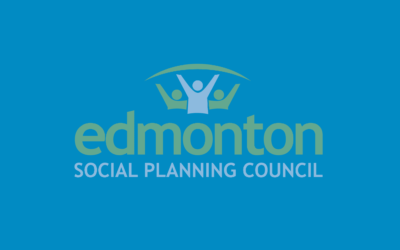By Dave Lazzarino, Edmonton Sun, October 8, 2014
Edmonton is finding a ‘new-found sense of identity”, says Mayor Don Iveson, responding to statistics on the city.
The Vital Signs report, a compilation of statistics that aim to give a snapshot of the health of the city from a variety of angles, was released Tuesday. This year the report focused on the condition of Edmonton’s youth and according to the mayor it is “encouraging.”
“We’re finding a new-found sense of identity in our city, a confidence,” said Mayor Don Iveson in reaction to some of the data presented at City Hall.
The positive numbers included a decrease in teen pregnancy from 29% in 1994 to just over 12% last year as well as a slight decrease in youth-involved crime.
But the numbers also show some less encouraging trends. Youth unemployment numbers are almost twice that of the average adult Edmontonian and half of those who do find work are making less than $15 an hour.
In a city where rent for a two-bedroom apartment is around $1,180 – $250 a month higher than the national average – and a vacancy rate of less than two per cent, that puts many in the category of working poor.
“We need housing, we need more supply of housing so there’s more competition so that rents moderate, and we need more of you earning a living wage,” said Iveson.
He said more employers have to see the value in paying $15 an hour as a living wage and suggested the city find a way of imposing a living wage by refusing to contract out to companies that pay any less.
“It’s an ethical question to ask as an employer and a steward of public money,” he said.
John Kolkman, research co-ordinator for the Edmonton social planning council, said the numbers aren’t completely bleak, pointing to the hopeful attitude of youth.
“One of the things that surprised us, we did a survey of youth and we found most youth were quite optimistic about their own personal futures,” said Kolkman, who helped develop the report.
He said many young people said they were involved or were interested in becoming involved in their communities.
“The opportunity is there,” said Shannon Cusitar, a 26-year-old second-year social work student at NorQuest College in Edmonton. “It’s not impossible.”
“It is hard work and dedication but if you really want something, it is achievable.”
She said young people may not realize the possibilities that are right in front of them and hopes to use her social work education to bring that message to some of the city’s struggling youth.
One of those opportunities has been created by NorQuest recently when they announced the Edmonton Oilers Community Foundation Hospitality Institute, which is aiming to connect young hospitality students with jobs in the growing downtown arena district.
More information for it can be found through NorQuest College at norquest.ca.
A report produced by the Edmonton Community Foundation (ECF) in partnership with the Edmonton Social Planning Council (ESPC), presents a wide range of statistics on housing, education, health, cultural diversity, voting trends, student debt and more, with a specific focus on youth.
Among the many findings, the reports shows that Edmonton’s median age is 36, compared to Canada’s median age of 40.6 and is the only large Canadian city that actually got younger between 2006 and 2011.
The report reveals that youth are feeling reasonably optimistic about their futures, youth are better educated, less likely to be involved in crime, and less likely to become pregnant. Youth, however, are also facing challenges; unemployment is still high, youth wages are low, and a survey of the youth found bullying and drug use to be high rated concerns.
If metro Edmonton is 100 people:
- 65 will own their own home
- 65 will have graduated from a post-secondary institution
- 34 will rent their home
- 81 will have completed high school
- 12 will live in low income or poverty
- 30 are visible minorities
- 41 did not vote federally
- 34 describe themselves as overweight
The report also reveals the attitudes and economic realities of 15 to 24 year olds.
- 65 per cent of youth agree with the statement: “I think the people of greater Edmonton area accept different cultures and beliefs.”
- 68 per cent of youth feel it is important to be involved in their community while only seven percent of the general population feel that youth actually are involved in their community.
- 52.9 per cent of youth earn $15/hour or less.
- Youth cite bullying (16.3%) as the biggest concern facing them today while only four per cent of adults think bullying is an issue.



